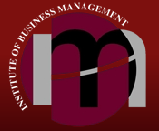Topic 1 - Business Management and Change
UNIT 1.1 - THE NATURE OF MANAGEMENT (PAGE 2)
*Management is the process of getting things done through other's activities
oIn the business world,
"XInvolves creating and environment encouraging individuals to carry out acts.
*Achieving personal and corporate goals.
oLargely a people orientated activity involving,
"XDiscussion
"XDecision making
"XDirecting
"XAdvising
oTasks of managers vary depending on
"XThe nature of the business
"XLevel of management concerned
The Importance of Effective Management (Page 4)
*Successful managers to achieve organisational goals efficiently and effectively.
oEfficiency is concerned with the relationship between inputs and outputs (good to minimise costs of resources).
oEffectiveness in management is about achieving goals.
Efficentcy Effectiveness
Management Roles (Page 6)
There are three types of management roles, which include:
*The interpersonal Role
*The Informational Role
*The Decisional Role
The Interpersonal Role
*Focuses sustainability on interpersonal relations
*Organisations should be based on 'Group ethic' rather than the autocratic model.
*Managers and workers should be partners as part of a common group and that managers should lead rather than command.
Successful managers should understand the interplay of the many forces within the organisation and act accordingly.
Leading involves setting goals, standards and example for subordinates, encouraging to work well.
*This interpersonal side of management relies on effective communications and creating an mage that command respect, loyalty and a desire to get things done.
Informational Roles
*Deals with the need for management to communicate with all parts of the business.
*Information from both internal / external areas
*Implement controls, which will provide management with information each stage.
*Three stages of controls
oInput controls
"XEstablishes standards/criteria which ensure the correct number and quality of inputs with sufficient stores to meet immediate need.
"XKnown as a Feed Forward Control - aimed at preventing anticipated problems
oConcurrent controls
"XOccurs while production is taking place (Steering, screening)
"XMeasures performance against set standards.
oFeedback controls
"XCompares output or results with the forecast performance.
"X(output or post-action controls)
The Decisional Role
*Mangers play roles where they are required to make choices. This invoices decision-making.
*Also play a part in
oEntrepreneural Roles
oDisturbance handlers
oResource Allocators
oNegotiators
The Skills Of Management (Page 9)
The main skills of management include:
*People skills
*Strategic Thinking
*Vision
*Flexibility and Adaptability to Change
*Self Management
*Team Work
*The Ability to solve complex problems and make decisions
*Ethical and High personal standards
People Skills (Page 9)
*Recent trends in management science point to greater cooperation, consideration and consultation between employees and management.
*Upward communications - Managers will seek ideas on particular issues from the employees.
*Managers of the future will be seen as facilitators who put practices in place that will help teams of workers to accomplish a task.
Strategic Thinking (Page 10)
*Involves owners and managers determining the prim function of the business in the first place.
*Establishing missions statement and goals consistent with the prime function
*AS managers identify strengths and weaknesses they should keep focus on sustaining and exploiting the competitive advantage.
Vision (Page 11)
*Top-level managers are the ones who are expected to have vision and enlightenment in the intermediate term.
*Management must not only have vision, but must communicate it to those who are responsible for bringing the vision to reality.
Flexibility and Adaptability to Change (Page 12)
*The leadership of managers should empower subordinates to maximise the skills and effectiveness.
*In order for a business to cope with change, its needs to be flexible.
oIn management, the leadership must be flexible enough to
"XSet particular direction and provide future vision.
"XAlign other in the business.
"XInvolve and motivate other people in the business.
Self-Management (Page 14)
*Good managers will develop systems by which the can operate efficiently.
*Involves careful planning and management of time
*Techniques involved include:
oPlanning each day
oDeveloping a goo filing system.
oStreamlining time
Team Work (Page 14)
*"Managers are needed whenever people try to work together in order to achieve a common goal".
*Managers themselves must be team players
*Their roles involves charting a course to a desired location
*Managers must make sure that the rest of the team have all the right resources, that they are on course and that they ed up at the correct destination.
Ability to Solve Complex Problems and Make Decisions (Page 15)
*The more democratical management style has combined with a flatter management structure.
*Communication upwards and downwards is needed to solve problems.
*However, the final decision and responsibility lies in the hands of the manager.
Ethical and High Personal Standards (Page 16)
*In the past 50 years there has been a significant shift in power in our society
*Community has moved away from government and transferred expectations towards business.
*At the core of these values, is the expectation that our business leaders have high standards of ethics and personal values.
*According to the ICAC Report, the behaviour of managers is important because:
oStaff are more likely to do what they see managers doing (lading by example)
oStatements from the CEO regarding their stance on ethics have more impact on the employees' decision making than do their own ethical goals and beliefs.
Responsibilities Of Management To The Stakeholders In Business (Page 18)
*A Stakeholder is any individual or group with a legitimate interesting in what an organisation does.
*Some stake-holders of a business would include:
oShareholders
oEmployees
oManagers
oCustomers
o
*Managers have a responsibility to stakeholder to:
oEnsures business grows/remains profitable whilst change occurs
oSocially just
oEcological Sustainability
oCompliance with the law
oCodes of Practice
Managing Change
*Change is alterations to what is occurring.
*Managers must deal w/change
oEnsuring business remains growing + profitable.
Social Justice
*Acting in a way that's fair + reasonable
*Example - Employing people based on skills/talents rather than race, religion etc.
Ecological Sustainability
*Development that meets the needs of present time w/out comprising future generations development
*Relationship b/t Economic growth and the Environment
*Need to save as many resources as possible.
oTherefore, we need to be as efficient as possible.
*THIS IS THE PROBLEM OF SATISFYING AS MANY NEEDS AND WANTS AS POSSIBLE IN RELATION TO OUR SCARCE NUMBER OF RESOURCES...
Compliance with Law
*Act to comply w/all aspects of law
*Management must ensure this.
Codes Of Practice
*statement of policies
*Implemented my managers
oClearly defines behaviour and conduct
"XLeads to increased productivity and pubic confidence.



Poor
a poor essay that does not reflect the topic, the formating is poor and structure is very poor.
1 out of 1 people found this comment useful.